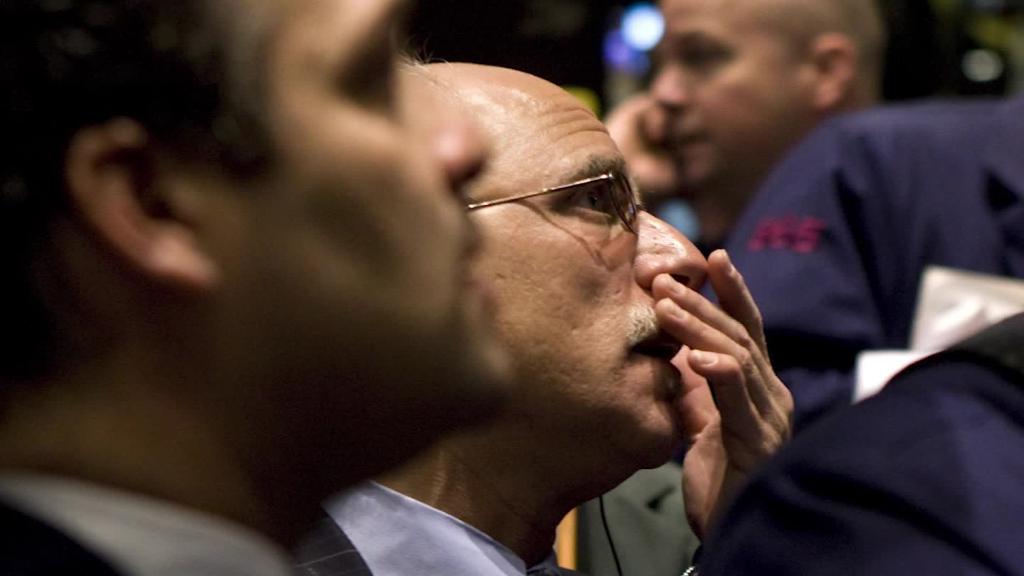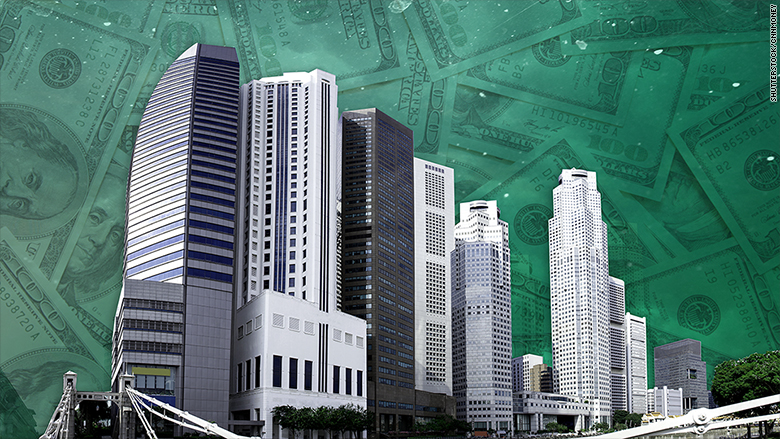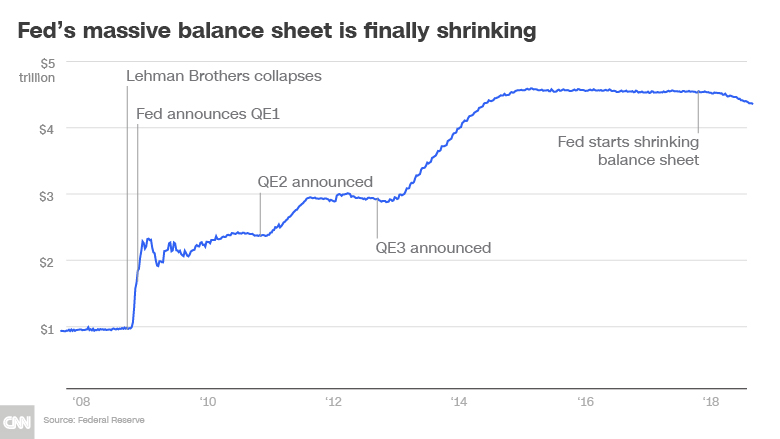
1. The next debt crisis: There's a $6.3 trillion elephant in the room. And it just might cause the next recession.
The last downturn was triggered by Wall Street and Americans accumulating too much debt — particularly in the sizzling housing market.
A decade later, it's Corporate America borrowing with gusto. Egged on by extremely low rates, US companies have piled on a record-setting $6.3 trillion of debt, according to S&P Global Ratings.
All that debt is easy to ignore right now. Default rates are minuscule. Companies are sitting on tons of cash, and their coffers are growing thanks to the soaring US economy and corporate tax cuts.
But eventually, both the economy and corporate profits will slow, leaving companies less firepower to pay down debt. And it won't be as easy to roll over the debt that's due. Debt-laden companies would be vulnerable to rising borrowing costs caused by the Federal Reserve's interest rate hikes.
If companies are stuck in a credit crunch, they will have to pull back on hiring and investment. That could be a recipe for a recession.
"Corporates, not consumers or banks, will cause [the] next recession," Michael Hartnett, Bank of America Merrill Lynch's chief investment strategist, wrote to clients on Thursday.
Corporate America's debt binge has helped finance the recovery. Companies have borrowed to open factories, buy equipment and develop products. A chunk of that debt has also gone to reward Wall Street with massive stock buybacks.
After a decade of low rates, companies have taken on more debt relative to the size of the economy than ever before. Total US business debt as a percentage of GDP is at a record high, according to David Ader of Informa Financial Intelligence.
The riskiest category of borrowers has never been more leveraged. Companies with junk credit ratings are holding a record low $8 of debt for every $1 of cash, according to S&P.

And then there are so-called zombie companies — which can't even afford interest payments, despite the strong economy and low rates.
Ben Breitholtz, data scientist at Bianco Research, found that 14% of the companies in the S&P 1500 don't have enough earnings before interest and taxes to cover interest expenses. That's above the world average of 10%.
Those zombie companies are probably cringing as central bankers slowly end the easy-money days. The Fed is expected to lift rates on Wednesday, the eighth hike since late 2015. Four more moves before the end of 2019 may be in the cards.
At the same time, the Fed is trimming its $4.5 trillion balance sheet — an experiment that could contribute to higher borrowing costs as foreign central banks follow suit and unload bonds.

Bank of America's Hartnett warned that an "aggressive" Fed in 2019 could trigger a "credit crunch" — not just in emerging markets, but in Corporate America.
2. Trade war: The US-China confrontation will escalate on Monday when the United States imposes tariffs on $200 billion worth of Chinese goods. On the same day, China has pledged to retaliate with a tariff on $60 billion of American goods.
The trade war is causing problems for Walmart, Procter & Gamble and a host of other companies that sell products imported from China or depend on Chinese goods in their supply chains.
3. Nike earnings: What do Nike executives have to say about the response to their Colin Kaepernick ad campaign? We'll find out Tuesday, when the company reports earnings.
Nike has had a good year: US sales are growing, and the stock is up 35%.
4. Economy watch: The US government on Thursday will give the final reading on economic growth in the second quarter. The previous revision showed a strong growth rate of 4.2%.
5. Coming this week:
Monday — US imposes tariffs on $200 billion worth of Chinese goods; MacOS Mojave launches
Tuesday — KB Home (KBH) and Nike (NKE) earnings; US consumer confidence
Wednesday — Bed Bath & Beyond and Carmax earnings; Federal Reserve interest rate decision; US new home sales for August
Thursday — Rite Aid, Carnival and Accenture earnings; final revision of US second-quarter GDP
Friday — End of Q3


